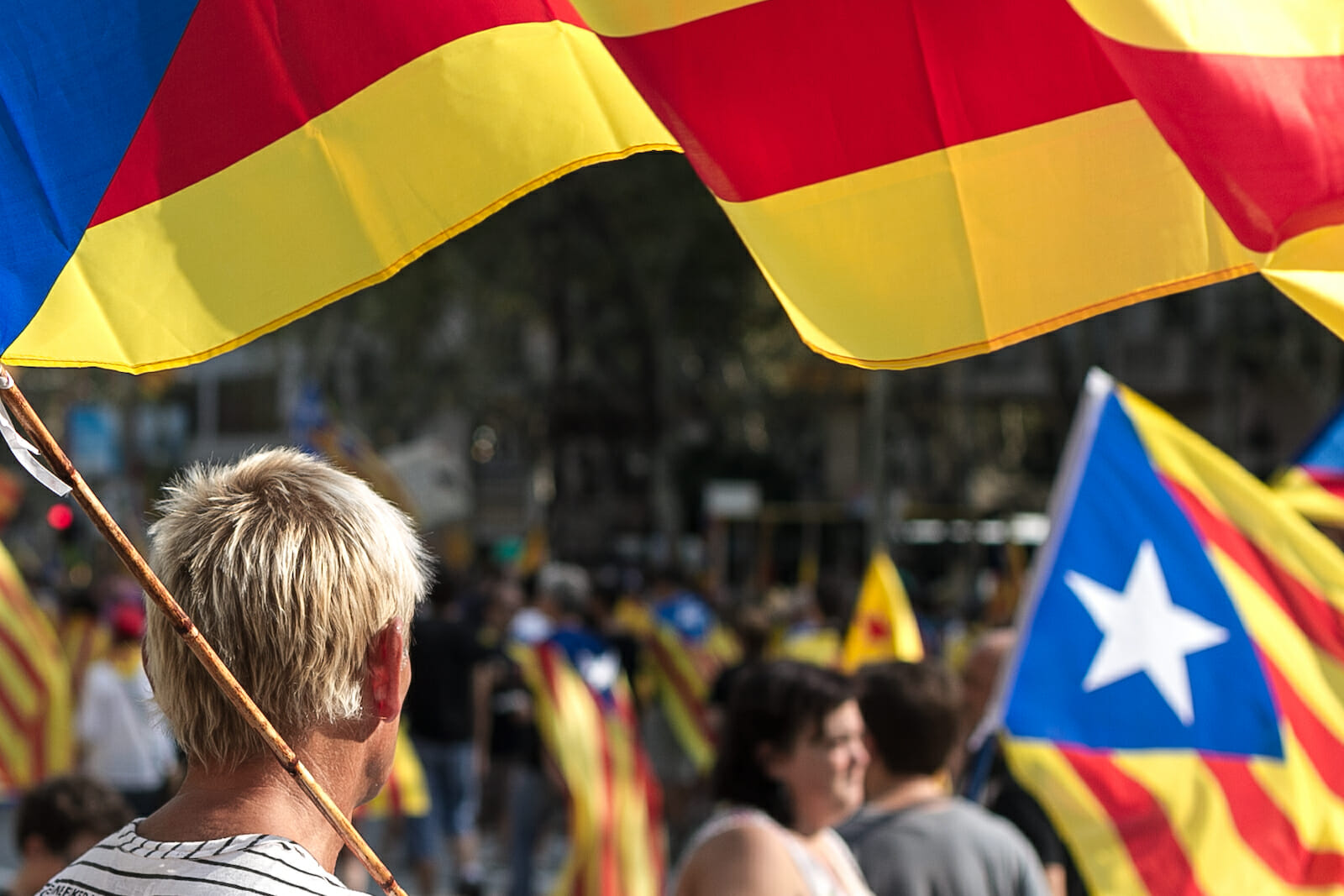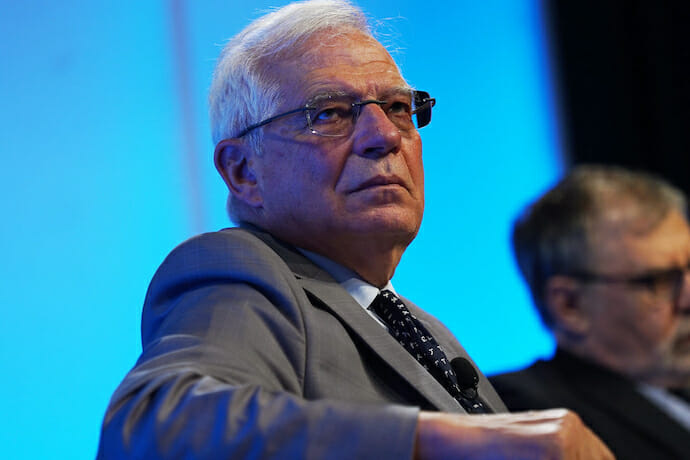
Spanish Diplomatic Behaviour in the Wake of Catalan Nationalism
Spain and Catalonia have been living in a climate of open conflict since the suspension of the Estatut d’Autonomia de Catalunya (the Catalan Statute of Autonomy) in 2010 and with increasing intensity since the unofficial consultation for independence in 2014 and finally with the referendum of October 1, 2017 in which Spain sent thousands of police to Catalonia to promote acts of violence and brutality against voters, while sending to jail several political personalities who are widely considered political prisoners.
The arm-wrestling between Spain and Catalonia also involves the diplomatic field. After the referendum of 2017, considered illegal by Spain, Catalan “embassies” abroad were closed as part of measures adopted with the application of Article 155 of the Spanish constitution that virtually suspended the powers of the Catalan government and passed them onto the central government in Madrid. These embassies have the objective of strengthening bilateral relations and facilitating economic agreements between Catalan companies and companies from other countries. By 2018 some of these embassies were reopened.
Faced with the European Council for the EU’s commitment to appointing as High Representative for Foreign Affairs and Security Policy, the current Minister of Foreign Affairs, Josep Borrell, has encountered resistance from the Catalan authorities and civil society groups alike. Borrell represents the continuity or even the resurgence of a policy aimed at crushing the interests of Catalans in their quest for independence.
First, a bit of historic background.
In an unprecedented gesture, honorary consul of Latvia, Xavier Vinyals, had his diplomatic status withdrawn by the Foreign Ministry for having placed a pro-independence flag on the balcony of the consulate during the Diada, the Catalan national day, on September 11, 2016. Vinyals, a Catalan, was punished for manifesting himself politically by supporting a cause, the independence of Catalonia, which is not illegal in Spain.

In October 2017, Bulgarian football legend, Hristo Stoichkov, was also dismissed from his honorary consul position after criticizing the then governing party, the PP, for police violence during the referendum for independence, accusing the police of being “Francoist.” Honorary Philippine consul, Jordi Puig Roches, was also dismissed from his post after attending protests on October 3rd in Barcelona in 2017 against police violence during the same referendum.
In February 2018, it was the turn of Finland’s Honorary Consul Albert Ginjaume to be fired from his post after pressure from the Spanish Foreign Ministry based on Finnish diplomacy. The crime of Ginjaume was to invite the mayor of the city of Sant Cugat, Mercè Conesa, for a lunch with consuls in Barcelona. The lunch was part of a monthly meeting of the diplomatic corps in Barcelona with the presence of local political figures. However, Conesa is a well-known pro-independence leader, which ended up costing the post of the now-former Consul of Finland.
The change of government with the departure of the PP and the entry of the center-left PSOE does not seem to have changed in any way the behavior of Spain in relation to Catalonia. Josep Borrell did not alter the policy of revoking the diplomatic credentials of foreign representatives, nor the conflict with other countries and leaders.
In October 2018, Fernando Turró, honorary consul of Greece in Barcelona, was removed from his post after Spanish pressure because he allegedly “offended the Spanish flag” for having, on September 11, participated in the acts of the Catalan Diada.
The withdrawal of diplomatic credentials is an extreme measure reserved for situations of great conflict and in exceptional circumstances and the Spanish pressure for the dismissal of at least 4 honorary consuls is unprecedented. Nevertheless, it was not the most radical acts of a country that seeks all ways to stifle the Catalan independence movement which, however, has found widespread international support among political leaders such as the Finnish deputy Mikko Kärnä and several MEPs and members of the Flemish Parliament.
In September 2018, a spokesman for the Flemish Parliament, one of the regions that make up Belgium, Jan Peumans, sent a letter to the Catalan leader and political prisoner, Carme Forcadell, in which he states that “detaining politicians for months is an evil act, proof that Spain’s central government is not capable of fulfilling the conditions to be part of a democratic European Union.”
Speaker of the Flemish parliament Jan Peumans just did what every democrat in EU should do: tell Madrid the unconvenient truth and condemn its undemocratic practices and authoritarian drift! @NVA_EU #FreeCatalanPoliticalPrisonersAndExiles https://t.co/iRDnHSZY1f
— Mark Demesmaeker 🎗 (@markdemesmaeker) October 17, 2018
Peumans’ letter was made public by his party colleague, Mark Demesmaeker, who, on Twitter wrote: “Speaker of the Flemish Parliament Jan Peumans just did what every democrat in EU should do: tell Madrid the inconvenient truth and condemn its undemocratic practices and authoritarian drift!”
The Spanish authorities, in response, removed the diplomatic status of Flemish delegate in Spain, Mark Hebbelinck, opening a diplomatic crisis with Belgium. Hebbelnick will be able to continue working as a delegate of Flanders in Spain, but without diplomatic status and if he is to be substituted by another delegate, he or she will not receive a diplomatic status as well. Flanders Minister-President, Geert Bourgeois, criticized the Spanish decision, which he said was “very hostile,” while Belgian diplomacy merely stated that the matter concerned the Flanders parliament.
As it turns out, Spain has sought to stifle Catalan nationalism on all possible fronts. At this very moment, 12 Catalan separatist leaders are awaiting their sentences before the Spanish Supreme Court with prosecutors seeking jail terms of up to 25 years for crimes such as disobedience, rebellion, and embezzlement of public funds. They all deny the charges and their lawyers claim that the trial is political.
The former president of the Catalan government, Carles Puigdemont, and other leaders such as Clara Ponsatí and Anna Gabriel are exiled and unable to return to Spain, where they would be arrested and tried for the crime of rebellion for exercising what the statute of their parties clearly states and for respecting the popular will of the Catalans.
Authoritarianism is not a novelty in Spain that seems to have not yet been able to overcome the methods of the Franco period and fully respect democracy. The fact is that Spain has been indisposed with several countries and acted like a bully, without any concern with its international image and, lately, with no respect for international law. Yet, Spain’s about to have his chief diplomat awarded a position he definitely does not deserve.
In the words of Slovenian former foreign minister, Ivo Vajgl, “the EU and its institutions cannot look the other way.”

